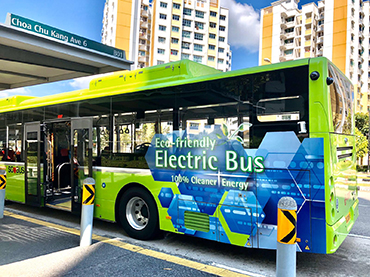Written Reply to Parliamentary Question on Lesson Learnt from Compressed Natural Gas Scheme for Vehicles and Plans to Use Hydrogen Fuel Cell Technology
Mr Shawn Huang Wei Zhong asked the Minister for Transport
a. what are the lessons learnt from the compressed natural gas scheme for vehicles in Singapore;
b. whether the Ministry has any future plans for vehicles to use hydrogen fuel cell technology; and
c. whether the Ministry will consider using hydrogen fuel cell vehicles for public transport.
Reply by Minister for Transport S Iswaran:
1. Compressed natural gas (CNG) vehicles were introduced in Singapore in 2002. The number of CNG vehicles peaked around 2010, with around 2,700 cars and 2,800 taxis. The experience with CNG vehicles highlighted the importance for technology, markets, infrastructure and regulations to develop in tandem, to provide assurance to consumers and businesses, and facilitate adoption.
2. In our move towards electric vehicles (EVs), we are making important moves in all these areas. With the global automotive industry making a clear shift towards EVs, we are significantly ramping up charging infrastructure nation-wide. We will be putting in place legislation to regulate and ensure safe, reliable, and accessible EV charging. Public transport vehicles are a key part of the transition. LTA will electrify half of our public bus fleet by 2030 and achieve a 100% cleaner energy public bus fleet by 2040.
3. While encouraging adoption of electric vehicles, LTA continues to monitor developments in other cleaner energy alternatives that can support our plans for a more sustainable land transport sector. Hydrogen fuel cell vehicles may have a role in decarbonising vehicle segments that require higher power and mileage. However, hydrogen fuel cell technology and its broader ecosystem will need to mature in areas such as vehicle efficiency, cost, availability of vehicle models and supporting infrastructure.
